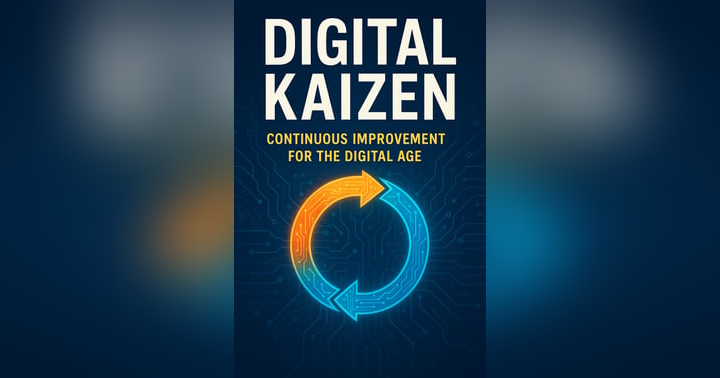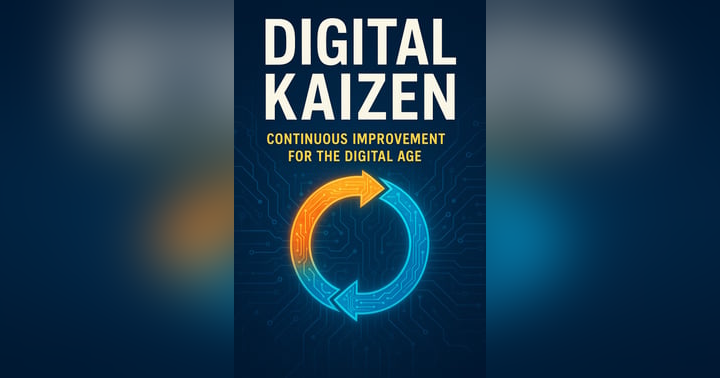The AI That Saves Advisors 500 Hours Yearly

How many hours could AI actually give back to a financial advisor?
According to Arnulf Hsu, founder of GReminders, the answer is 500. Not 50. Not 150. Five hundred hours per year.
That stat stuck with me long after our conversation ended.
In my 22 years of financial advising, I've watched technology promises come and go. Most add complexity while promising simplicity. Most create new problems while solving old ones.
This feels different.
The Invisible Partner
Arnulf doesn't position his AI as a replacement for advisors. He calls it an "invisible partner."
The distinction matters more than you might think.
Traditional advisor workflow looked like this: manually scheduling annual reviews, calling clients to confirm meetings, spending hours preparing by collecting notes and portfolio data, having a paraplanner take notes during meetings, logging everything into the CRM afterward, and writing follow-up emails.
Sound familiar?
With GReminders' "Ask & Do Anything" feature, almost all of that pre and post-meeting work gets automated. The advisor still has the meeting. Everything else happens in the background.
The result? Advisors get 30-40% of their time back.
But here's what struck me most about my conversation with Arnulf: the technology becomes invisible precisely because it works so well.
Freeing Advisors to Be Fully Present
When I asked Arnulf about the quality of advisor-client meetings after implementing this level of automation, his answer was simple: "They are focused on the client, what is being said, and not doing rote admin work."
This addresses something I've observed throughout my career. The best advisors are fully present with their clients. They're not mentally juggling follow-up tasks or trying to remember every detail for later documentation.
They're just there.
Voice-aware AI makes this possible by handling what Arnulf calls the "cognitive load" of remembering and organizing information. The advisor can focus entirely on the human moment that matters most.
This becomes especially important when you consider that poor communication is the number one reason clients leave advisors.
AI That Meets Compliance Head-On
Here's where most AI conversations get theoretical. Arnulf gets practical.
When I pressed him about advisor resistance to AI, he didn't mention fear of replacement or learning curves. He talked about compliance.
"Compliance and Governance is the biggest hurdle," he told me. "Most advisors these days understand the value of AI and automations, but ensuring everything is done in a compliant friendly way is one of the biggest challenges."
This resonates deeply with my experience. You can't innovate if you can't operate within regulatory boundaries.
GReminders addresses this by journaling all client interactions, maintaining SOC2 compliance, and working directly with compliance departments on data privacy and security concerns.
But the real breakthrough is in how they've structured the AI's capabilities.
Context as the Ultimate Guardrail
The "Ask & Do Anything" feature sounds dangerous from a compliance perspective. How do you maintain control when an advisor can literally ask the AI to do anything?
Arnulf's answer reveals sophisticated thinking: "Context is KEY to AI. Our AI 'ask/do anything' is always on the client record. We always know the household/contact that is being referenced."
The AI operates within a defined sandbox. It has access to CRM notes, calendars, emails, and portfolio data, but always within the context of a specific client household.
Any destructive or client-facing action requires confirmation before execution.
This client-scoped approach solves the compliance problem while maintaining the natural language interface that makes the technology so powerful.
Talk to Your CRM
What fascinated me most was Arnulf's observation about how advisors interact with their client data differently when using voice-aware AI.
"It doesn't require them to know where everything lives," he explained. "The AI can essentially handle the 'UI' side of things, since the advisor just interfaces with natural language."
Instead of clicking through screens to find information, advisors have conversations about their clients.
This changes everything.
When technology becomes conversational, it stops being technology. It becomes an extension of how we naturally think and communicate.
The barrier to using software drops to zero when the interface is simply talking.
From Pull to Push Intelligence
Looking ahead, Arnulf sees the biggest opportunity in AI that proactively surfaces insights rather than just responding to requests.
"I think AI can 'push' more insights/recommendations at the right time to advisors," he told me. "Rather than 'pull' (asking), the AI can recommend 'next best actions' and things you should be doing that you are not."
This represents a fundamental shift from reactive to proactive AI assistance.
The challenge, as Arnulf noted, is making recommendations that are "timely, correct, and useful" rather than just more noise competing for attention.
Getting this balance right could transform how advisors discover opportunities and manage their practices.
Why AI Adoption Isn't Optional
When I asked Arnulf about the future of advisory practices, his response was direct: "If you don't adopt AI & automations you will simply fall behind. Imagine if you didn't use email or a smartphone in today's world. Could you operate? Maybe. But you will definitely not keep up with your peers and you are definitely not growing."
It's not just theory—80% of advisors plan to automate time-consuming tasks with AI.
The question isn't whether to adopt. It's how to adopt thoughtfully.
Starting Small, Thinking Big
Arnulf's advice for advisors feeling overwhelmed by AI adoption is refreshingly practical: "Limit change management. Change management is hard, so let AI/automations do some of the stuff you already do, just automate that piece of it."
He recommends starting with AI notetakers because they require "almost zero change management" while providing "instant gratification."
This embodies the Digital Kaizen philosophy perfectly. Small, sustainable improvements rather than wholesale transformation.
You don't need to rebuild your practice. Just delegate what doesn't require your humanity.
The Future of Invisible Technology
Near the end of our conversation, Arnulf shared something that stuck with me: "The joke is once AI 'works' it's no longer called AI. So in the future it won't be called 'AI' it will just be systems and software like we had before, just better, a heck of a lot more intelligent."
That's the ultimate goal. Technology so seamless it disappears.
When AI becomes invisible infrastructure rather than a separate tool, advisors can focus entirely on what they do best: building relationships, providing guidance, and helping clients achieve their goals.
The GReminders platform represents this future today.
The Time-Abundant Advisor
As I reflect on my conversation with Arnulf, I keep coming back to that number: 500 hours.
That's not just time saved. That's time redirected toward what matters most.
More meaningful client conversations. More frequent touchpoints. More opportunities to grow the practice.
In an industry where relationships drive everything, voice-aware AI doesn't replace the human element. It amplifies it.
The advisors who embrace this technology won't just be more efficient. They'll be more present, more engaged, and more valuable to their clients.
That's the promise of an invisible partner. Not to replace what makes you human—but to protect it.
The only question left is: what will you do with your 500 hours?
Want to see what 500 extra hours could unlock for your firm? Let's start that conversation.
Chris Hensley is a financial advisor, podcast host, and creator of the upcoming book Digital Kaizen: Small Loops, Big Shifts in an AI World. With over two decades of experience guiding clients through complex financial decisions, Chris now blends his expertise in retirement planning with cutting-edge tools like AI, voice-first thinking, and behavioral science. Digital Kaizen is a philosophy for those who want to grow sustainably in a world that moves fast—combining human wisdom, technology, and tiny, honest loops of improvement. This article is a preview of the ideas explored in Digital Kaizen, due out later this year.👉 Want early access to tools and insights from Digital Kaizen? https://digital-kaizen-book.kit.com/6a16de43b8
Grab the free Digital Kaizen Starter Guide and explore how to build better systems for thinking, learning, and working in an AI world.
Arnulf Hsu is the founder and CEO of GReminders, a leading platform pioneering voice-aware AI designed specifically for financial advisors and service professionals. With a deep background in engineering and enterprise software, Arnulf has spent the past decade building tools that free humans from rote tasks so they can focus on the work that really matters.






